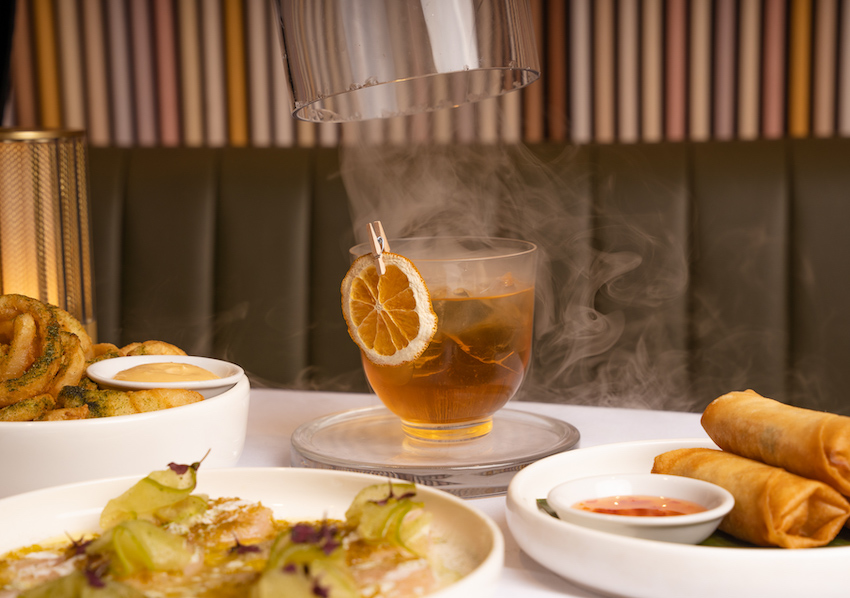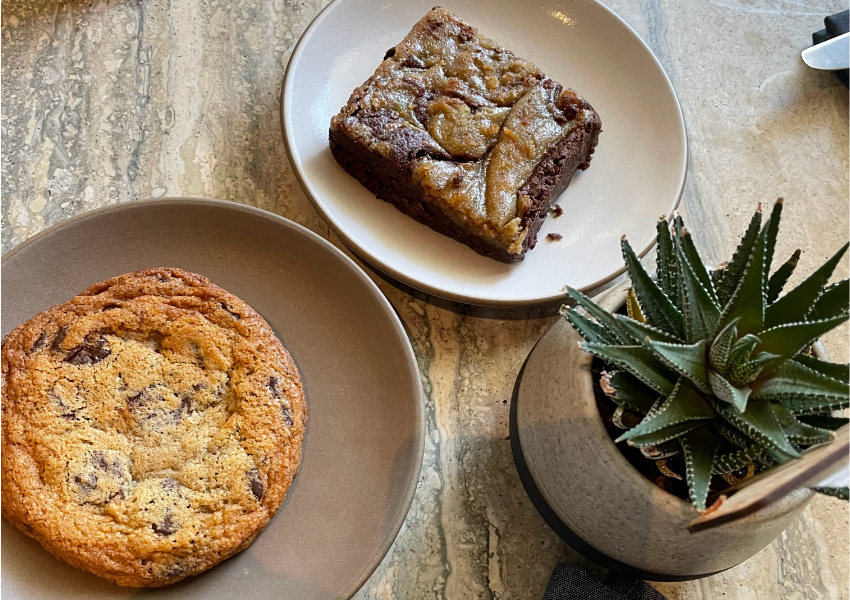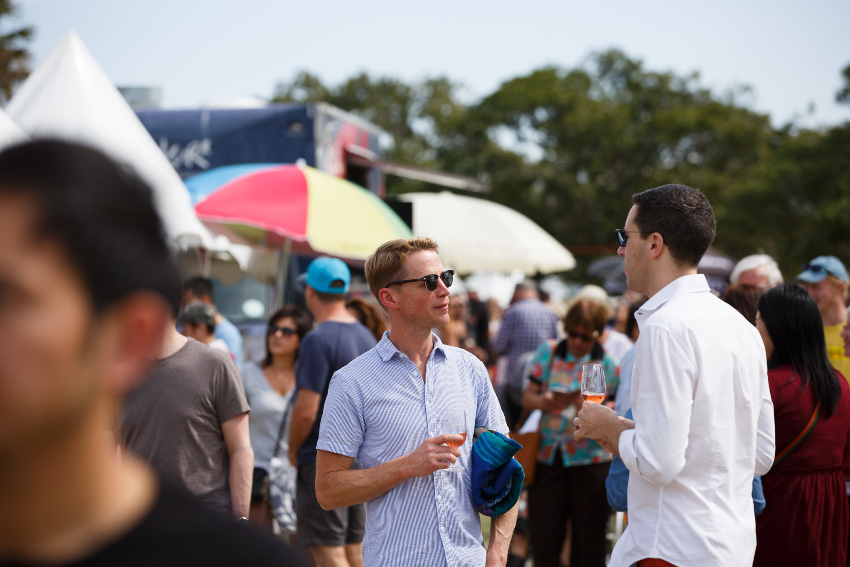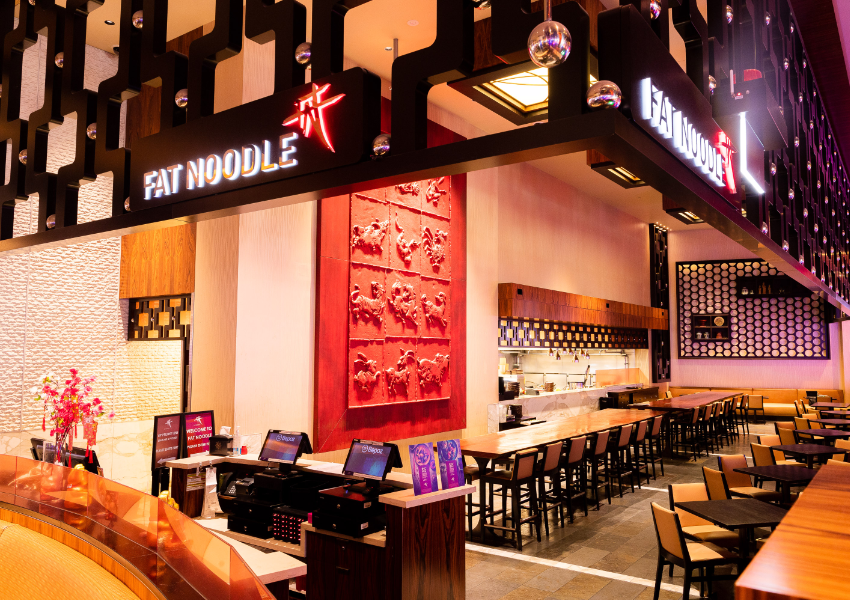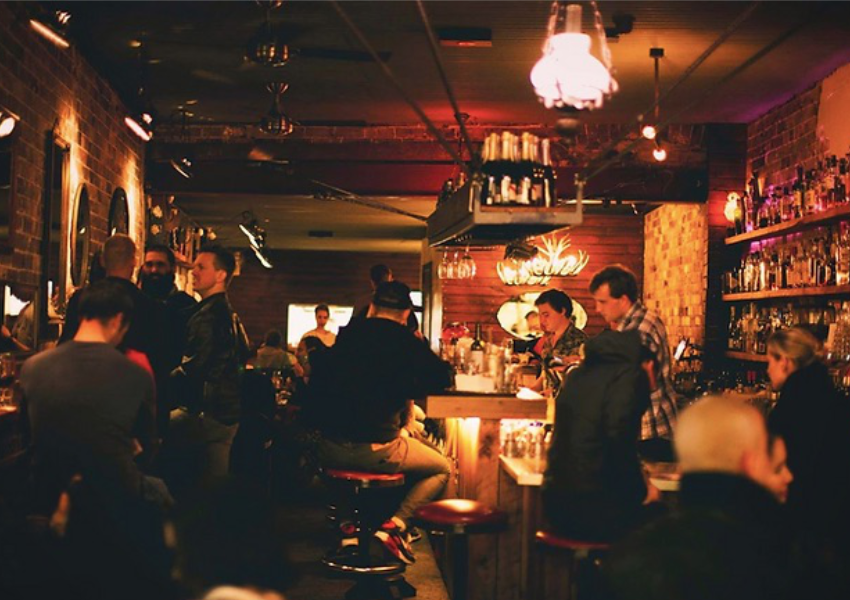
Moore Than She Could Chu

In what has become an epic battle, Clover Moore may have bitten off more than she can chew when the City of Sydney took on Nahji Chu.
I met up with Nahji Chu, and her (now infamous) dog George, at her production kitchen in Kings Cross. George was dog- napped a few days after my interview, then returned through the persistence of his owner, who launched a social media campaign to get him back. It’s this very persistence that has landed her in hot water with her local council.
“So it’s actually Misschu Tuckshop versus City of Sydney Council – so basically we’re taking the City of Sydney to court, and we’re fighting for the fact that we would like to play music on the street.”
Nahji owns the popular Misschu Tuckshop on Bourke Street, close to the busy William Street intersection. It’s set in a spot that’s housed a café for the last twenty years. What began as a catering business, quickly expanded when “people kept knocking on the doors and windows, whilst we were working, annoying the hell out of us all lunchtime, going: ‘When can we order your food?’”
Soon it was a thriving little business. It seemed locals and visitors alike couldn’t get enough of her new Vietnamese cuisine: “Me being Misschu – I’m not a normal café – it was just not enough for everybody. It’s too popular. Especially when we opened. We were in all the magazines, especially the amazing ones, and everyone soon found out about this little place called Misschu.”
I was amongst the enthusiastic proponents of her innovative modern Vietnamese-Australian cuisine. I rushed down to her reffo-chic café for a taste of rice-paper heaven. Like others I queued at her bamboo window, and partook of her bounty amongst the banana palms on the busy pavement. One bite and I was hooked, not only on the product, but also on the way Nahji had taken an ugly corner of Clover Moore’s “City of Villages” and made it beautiful.
It seems I wasn’t the only one to think so. Apparently many residents in the street have told Nahji that in the twenty years they’ve lived there, she’s the only person who has made this actual corner work.
Pretty soon: “People were lining up, and it was just kind of a bit mental. And so we decided we need a few more chairs and tables – within reason – so people can still walk past.” Like most people, Nahji looked into her Development Application: “I didn’t think it would be a problem with Council, because one, they’ll promote and encourage it.”
But the measly “three tables and nine chairs” wasn’t enough. Even when she bought the right to use some of the neighbouring convenience store’s frontage, Nahji was still unable to meet demand. So she applied for thirty seats in a D.A. that’s “still pending. It’s taken about twelve months so far to try to get approval from the Council.”
Enter the anonymous caller. “I have a anonymous caller who rings the Council every week. I don’t know who it is, but it’s like one of those nuisance callers. And then once you get a nuisance caller to Council, the Council says we have to act, legally, when we receive a complaint, and usually it’s about your music, and you play it to 3am.” Considering her store closes at 9pm when the street reverts to a different set of traditional owners, Sydney sex workers, this is blatantly untrue.
Nahji gets on well with local sex workers, explaining: “Well it’s their corner, it’s always been their corner. I’m a tuckshop by day, and a fuck-shop by night.” Working a strip dominated by unhealthy late-night food options, it’s unsurprising that some of the sex workers wish she was open later too.
“It’s not a noise issue, it’s a technicality. It’s the fact that I have speakers facing Council land, or on Council land. The fact that it’s mounted onto the wall of my building doesn’t count. The Council see it as ‘no, it’s still on the footpath.’ It’s pathetic… absolutely pathetic.” What’s pathetic is that one person can destroy a small business that brings pleasure to so many, through repeated, vexatious complaints to the City of Sydney.
As Nahji explains: “I know that most Sydneysiders love it. There’s just this one person that’s trying to close me down, and they know that they can, because I’m outside the law and they know that.”
Nahji Chu met Clover Moore when her business won the City of Sydney Business Award in 2009 and again in 2010: “Clover physically handed me the trophy, and stood next to me whilst the photo was taken, and I said:‘ Clover, you must come down to my café. You know how popular it is, well you do now.’ I said, ‘you must know who I am? Can you please come down to the café to see what my problem is?’” According to Nahji, Moore replied: “Look I have people who look after that section.”
Whilst Clover hasn’t visited, Misschu does get frequent City of Sydney visitors, the rangers. There was a business projects manager or two, but “their conversations were like: ‘Have you thought about moving, down the road?’”
Whilst many would move on, Nahji says: “I don’t want to let go of that site. For me it’s got an emotional value. It’s where I started.” It’s where she started over again, actually, as a successful boat person; one who isn’t claiming welfare, and is making (rather than taking) Aussie jobs.
“The history of me is that I left in 1975, Laos, Luang Prahbang, and then I spent four years in refugee camps in North Thailand – three and a half years actually, before arriving in 1978. So I grew up pretty much in a refugee camp. And you can see on my visa on my menu. It says day of arrival 19th March, 1978,” says Nahji. Her family supported itself in the refugee camp by selling food. Her mother made desserts: “She had a little stall, and my auntie had a little stall making chicken and beef soup as well. I don’t know if it was chicken and beef, it was soup anyway, because we didn’t have chickens. We didn’t have beef either. We had rations of whatever they gave us – rice and an egg per day – but we grew vegies.”
After enduring this hardship, when the family arrived in Australia in 1978, Nahji’s auntie’s “first words were: ‘My God, we have to feed these people.’ She instantly recognised that the food here was quite shocking… everything out of tins and frozen.”
Her family worked on a chicken farm, and kept a few chooks in their own back yard. As Nahji remembers, they’d “slay them, and collect the blood to make blood tofu, which went in congee and soups. And the chicken, we’d pluck the feathers and things like that – and the kids at school would call us weirdos because we killed our own chickens. So my aunt and my mother would say: ‘Well actually they’re the weirdos because they eat frozen chicken!’”
Misschu comes from Nahji growing up between these two worlds. “The whole experience of Misschu is about getting the story, my experiences,” explains Nahji. “Music nourishes the soul. Food is not about just food anymore. It has to be the complete package, it’s an experience, and music’s a large part of that.” Nahji goes on to add: “There’s also a sense of visual nourishment because it’s all very street furniture, you know, refugee- ish…”
But after each weekly call from the same anonymous caller, City of Sydney henchmen descend in a fine-writing frenzy, eroding Nahji’s story piece by piece. “Remember we used to have those banana trees out the front? Well we had to get rid of them, because we were forced to. The Council Rangers stood there and said: ‘Unless you remove these by truck now, we’ll issue you $330 fine for each article, as an exposed article on the street without a D.A.” Add to this “a fine of $1000 each speaker. So every time they come out and they see the speakers, whether it’s playing music or not, I get a $3000 fine.”
At every turn, City of Sydney destroys rather than celebrates the colour and joy Misschu brings to a city corner dominated by traffic noise. To lose the flavour of Misschu – the palm trees, the music, the bowl of fruit adorning the ugly traffic box, is to lose the story of the boat person. As Nahji puts it, it’d be like “eating for the sake of eating.”
After such a difficult journey to Australia, it’s easy to see why Nahji Chu has dug her heels into the first piece of dirt she can really call her own. What’s not easy to understand is why Clover Moore isn’t on her side? Moore likes to tout that “diverse and quirky village centres are an important part of Sydney’s appeal” but she can’t even get to Bourke Street to save one!
Perhaps instead of writing fines, Clover Moore’s henchmen would be better placed to write to the producers of Australian Story. Nahji Chu’s story deserves to be told. As Nahji told me: “I’m a classic new Vietnamese Australian, and I embrace that.” So let her have her music and her palm trees!




